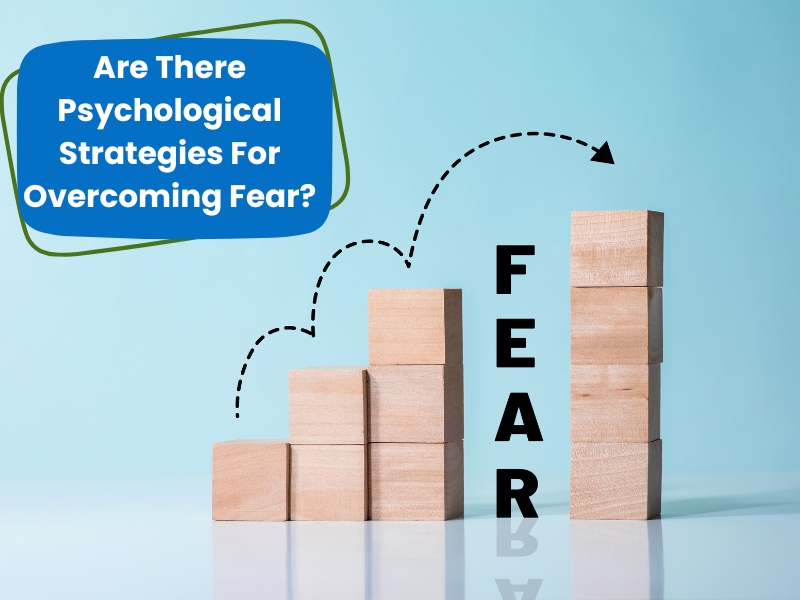Fear can be overwhelming, affecting various aspects of life and limiting our potential. Whether it’s a specific phobia, general anxiety, or fear triggered by past trauma, psychological strategies offer practical ways to confront and manage these intense feelings. Let’s explore how understanding and addressing fear can be transformative.
Why is it important to understand the source of your fear?
Understanding your fear’s origin is often the first step in overcoming it. By pinpointing the root cause, you can better approach the fear with effective strategies.
- Gain insight: Fear can often stem from past experiences. By identifying these events, you can unravel their emotional impact on your current behaviour.
- Recognise patterns: Are there situations that consistently trigger your fear? Recognising patterns helps to anticipate and manage reactions.
- Differentiate types of fear: Understanding whether your fear is rational or irrational can help you tackle it. For example, fear of danger differs from a phobia, which may be disproportionate.
- Set the stage for healing: When you comprehend the source of your fear, you can work towards healing, whether through self-help techniques or with the support of a professional.
What are psychological strategies for managing fear?
Individuals can use a range of psychological strategies to address fear. Each plan can be personalised, depending on the nature of the fear and the person’s comfort level.
- Cognitive behavioural techniques (CBT): Cognitive behavioural therapy helps to challenge and change unhelpful thoughts and behaviours. It encourages examining the validity of fears and developing healthier thought patterns.
- Visualisation: Imagining positive outcomes can reduce anxiety and build confidence in facing feared situations.
- Journaling: Writing down fears and emotions can help process them and provide a sense of relief.
- Positive self-talk: Replacing negative thoughts with affirming statements can foster resilience.
What role does mindfulness play in psychological strategies?
Mindfulness is a powerful tool for managing fear and promoting awareness and acceptance of the present moment without judgment.
- Deep breathing exercises: Focusing on your breath helps calm the nervous system and brings you back to the present.
- Body scan meditation: This practice involves mentally scanning your body for tension, helping you to release stress and ground yourself.
- Observing thoughts without engagement: Mindfulness encourages recognising fearful thoughts without letting them take over. This detachment can reduce their intensity.
- Progressive muscle relaxation: Slowly tensing and releasing each muscle group helps reduce overall body tension.

Furthermore, the role of technology in mental health assessment has become increasingly important, enabling more accurate evaluations and providing accessible tools for tracking progress and managing mental health conditions. Individuals can use a range of psychological strategies to address fear. Each plan can be personalised, depending on the nature of the fear and the person’s comfort level.
How do exposure techniques reduce fear?
Exposure techniques gradually and systematically introduce individuals to their fears in a controlled way, helping to desensitise the emotional response.
- Gradual exposure: This involves facing your fear in small steps. For instance, if you’re afraid of flying, you might start by looking at pictures of planes and then progress to visiting an airport.
- Systematic desensitisation: Combining relaxation techniques with exposure can make confronting fears less distressing.
- Imaginal exposure: This method involves visualising a feared situation before encountering it.
- Virtual Reality exposure: In some cases, technology simulates experiences for safe and controlled exposure.
Can relaxation techniques be part of psychological strategies for fear?
Yes, relaxation techniques are essential in managing fear and calming the body’s stress response.
- Deep breathing: Slow, controlled breathing can help manage acute fear and reduce anxiety.
- Guided imagery: Visualising a safe and calming place can shift your focus from fear to relaxation.
- Meditation: Regular meditation can lower stress levels and improve your ability to manage fear.
- Autogenic training involves repeating calming phrases to relax the body and mind, promoting peace.
How can you build confidence through psychological strategies?
Building confidence can make you feel more equipped to face your fears and improve your overall emotional well-being. Additionally, exploring financial aid for mental health treatment can ease the burden of costs, ensuring that individuals have access to the necessary support and resources for their well-being.
- Set small, achievable goals: Gradually work towards more significant challenges and celebrate small victories.
- Practice positive visualisation: Envision yourself successfully facing your fears, boosting your self-efficacy.
- Reframe setbacks: View mistakes as learning opportunities rather than failures.
- Develop coping strategies: Having a plan for when fear strikes can increase your sense of control and confidence.

How can supportive relationships aid in overcoming fear?
A strong support network can make a significant difference when working through fear. Having people who understand and encourage you can be empowering.
- Share your experiences: Talking about your fears with trusted friends or family can comfort you.
- Receive encouragement: Positive reinforcement from loved ones can strengthen your resolve to face fear.
- Benefit from accountability: Supportive relationships can help you stay committed to overcoming fear.
- Engage in social activities: Participating in group activities can reduce feelings of isolation and provide emotional relief.
What are the benefits of professional help in using psychological strategies?
While self-help methods can be effective, professional psychology services provide a more structured and personalised approach to managing fear.
- Personalised care: Experienced psychologists design treatment plans tailored to individual needs and challenges.
- Evidence-based approaches: Proven methods, such as cognitive behavioural therapy and exposure therapy, address fear effectively.
- Ongoing support: Consistent follow-ups and adjustments ensure steady and continuous progress.
- Access to diverse expertise: Comprehensive services, including counselling, behaviour support, and NDIS-funded psychological services, support diverse needs.
Empower yourself to overcome fear
Auburn Health Centre is committed to helping you or your loved ones manage and overcome fear. Our compassionate and experienced psychologists work alongside you to develop personalised strategies, ensuring the best care possible. We understand the importance of a supportive and understanding environment and are here to assist every step of the way.
Ready to control your fears and improve your mental well-being? Contact Auburn Health Centre in Auburn, NSW, to learn more about our psychology services or to book an appointment today. Let us be your partner in achieving a life filled with confidence and peace.


